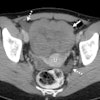Dear CT Insider,
After low uptake for years, CT lung cancer screening now appears to be poised for an upturn. A flurry of clinical trials, most prominently the Dutch-Belgian Randomized Lung Cancer Screening (NELSON) trial, has recently re-emphasized the potential lifesaving benefit of the test for high-risk smokers.
In a new study, researchers from New York uncovered an ancillary benefit of CT lung screening that could help improve the survival rate of eligible individuals who are also at risk for head and neck cancer. Get the details of their findings in this edition's Insider Exclusive.
CT lung screening, in conjunction with smoking-control efforts, will likely contribute to a dramatic dip in lung cancer mortality in the next half century, according to researchers from the U.S. National Cancer Institute. The institute's latest report on lung cancer projected a hypothetical reduction of nearly 80% in the overall mortality rate.
Furthermore, several groups have come up with new ways to reverse the underwhelming adherence rate of individuals who undergo CT lung screening, including revamping decision aids to reflect the benefits and harms of the exam more accurately.
To be sure, clinicians and scientists have also acknowledged that CT scanning is not without its potential dangers. The National Council on Radiation Protection and Measurements, the U.S. Food and Drug Administration, and other authorities have long held that exposure to radiation even at the lowest of doses could increase the risk of cancer -- a stance that the U.S. Environmental Protection Agency proposed modifying earlier this year. The agency has suggested a rule change that could lead to looser radiation regulations, including for CT.
In other news, the imaging modality continues to prove useful in a wide range of clinical settings:
- Researchers from Canada confirmed that CT was a viable alternative to cardiac MRI for assessing heart chamber enlargement.
- A CT radiomics model helped investigators from China determine the malignancy of lymph node metastases in patients with bile duct cancer.
- Machine-learning algorithms were able to characterize plaques on coronary CT angiography scans by measuring attenuation levels.
CT colonography has also shown value beyond the detection of colorectal cancer. A group from the University of Wisconsin demonstrated how calcium scores on CT colonography screening exams might be more effective than traditional measures -- such as the Framingham risk score -- for estimating an individual's risk of adverse cardiac events.
To read these and other related stories, head over to the CT Community at AuntMinnie.com.




















